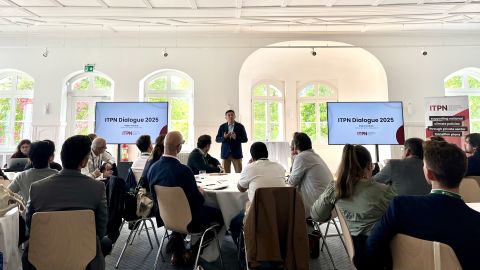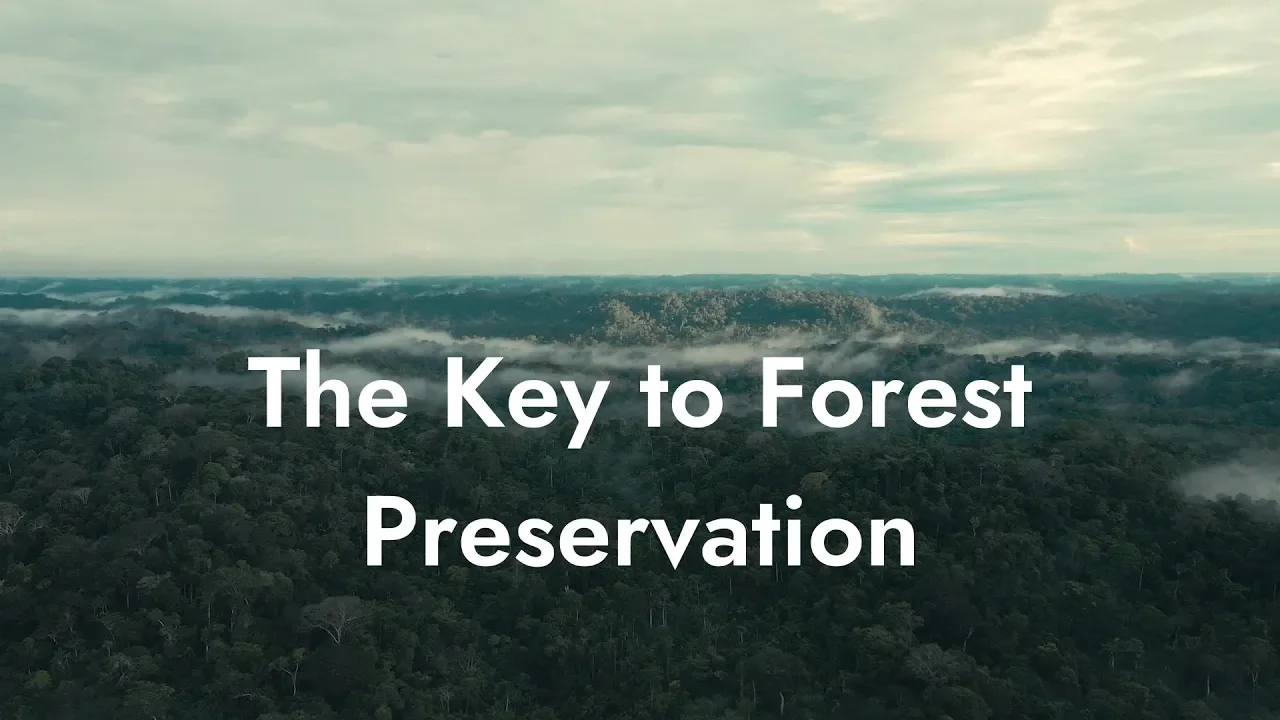Ideas from the Speakers
This session focused on the importance of sustainable finance initiatives. The first speakers indicated that there is hope in this field despite political headwinds. One expert challenged the harmful belief that “where finance goes, so go emissions,” pointing to global successes that disprove it — for example, India has already achieved 20% of its 2030 land restoration goal, and 80% of major banks in the Net-Zero Banking Alliance have committed to reducing their carbon-intensive investments. The other noted that the rules governing carbon trading that emerged from the 2024 UN Biodiversity Conference (COP 16) in Cali, Colombia will help progress towards pricing carbon externalities. In Cali, 119 countries submitted biodiversity targets, evidence of the will to engage in nature protection.
To enable the much-needed acceleration and expansion in the private sector, clear and actionable national transition plans, as well as blended finance, will be essential. Also stressed was the need for firms to focus on the long term rather than the nearest election cycle when making critical decisions. Sustainable finance must demonstrate that it offers a sound business rationale, especially as financial actors who fail to transition risk stranded assets as well as a range of other negative consequences.
Another speaker emphasized the need to reconcile public and private financial institutions through greater coordination. The roughly 600 public development banks globally serve as a backbone that must become more efficient and less fragmented to help unlock private funding. A key step towards achieving this goal would be finalizing Article 6 of the Paris Agreement – a critical framework for standardizing and facilitating carbon trading. Other approaches include adopting a global perspective that promotes efficiency over narrowly focused local efforts; advancing debt swaps and loan restructuring; expanding the balance sheets of public development banks; and increasing the availability of concessional resources. Finally, the idea of creating a new asset class, public development bank bonds, was raised as a potential incentive to globalize concessional finance.
The importance of coordination was echoed in a video intervention positing the need for common frameworks and taxonomies. This would provide investors with better data and encourage further blended finance.
Representing the KlimaSeniorinnen group, which won its landmark climate justice case against the Swiss government, a speaker affirmed that protection against climate change is a human right, a fact that needs to be recognized by governments and firms alike. She noted that the case has increased respect for the movement, but old prejudices have resurfaced because of the Swiss government’s begrudging response. Nevertheless, she explained that the link has definitively been established: states do have a responsibility to defend their citizens from adverse climate consequences.
Echoing this message of defiance and hope, another speaker underscored that human rights remain as important today as ever and that the right to a healthy environment is becoming increasingly urgent. She questioned what alternative there is to standing up for human rights and decried the troubling trend of science denial in countries that have traditionally been champions of these rights. She emphasized the collective need to uphold these fundamental values in this critical moment marked by deep injustices to nature and across generations, genders, etc.
Insights from the Audience
Responding to a question about the role of the “invisible codefendant of businesses (such as oil giants),” the panelists firmly asserted that courts should not make the mistake of debating the science. They called for resilience in the face of resistance; for them, climate litigation drives progress in powerful leaps forward.
Finally, in response to an audience question regarding the lack of integration of human rights into the operations of organizations, countries and businesses, the panelists affirmed that double standards in international affairs are increasingly unacceptable and harmful to progress.
In conclusion, the session highlighted both the urgency and the opportunity embedded in sustainable finance. Despite persistent political and institutional barriers, there was a strong consensus that progress is not only possible but already underway—through global cooperation, evolving regulatory frameworks, and a growing recognition of the financial risks of inaction.
In closing, the session underscored that high-quality, transparent, and accessible data is the foundation of sustainable finance. As financial institutions face increasing regulatory demands and investor expectations, the ability to collect, process, and apply ESG data—particularly at the granular, company-specific level—will be crucial for effective decision-making and risk management.










